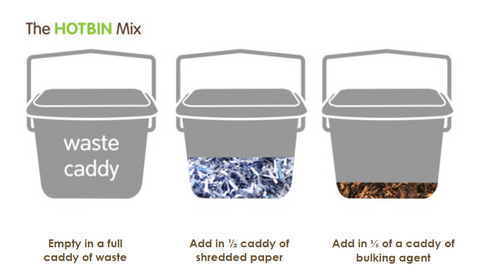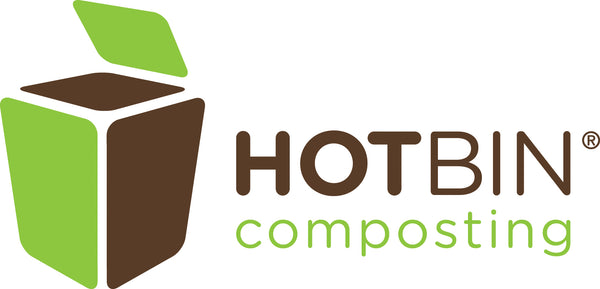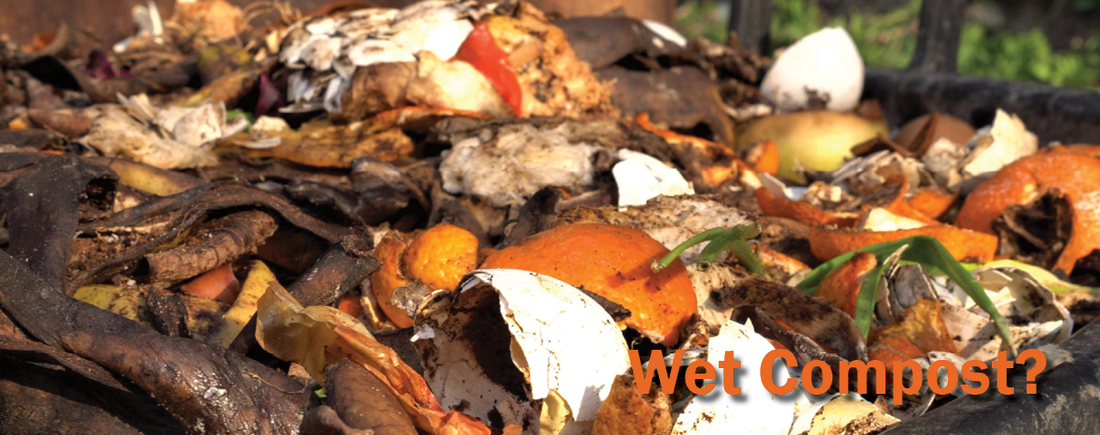How to fix or balance a waste that is already wet?
Adding easy to digest waste and shredded paper/corrugated cardboard into your mix, helps absorb excess moisture. If you have a HOTBIN, be sure to follow shredded paper to wet/food waste ratios to determine how much paper you need to add to your food waste (see below image). In addition, the portion of bulking agent/mulch should be added to enable airflow within the HOTBIN. Bulking agent/mulch together with shredded paper/cardboard will allow air to percolate and excess moisture to drain away.

What are the signs my waste is ‘too wet’ for hot composting?
- Lots of liquid fertilizer (brown liquid) leaking from the mesh plate. (Check the water is seeping from behind the mesh plate, ignore condensation and lots of water dripping off the inside of lid when you open it)
- The waste in the HOTBIN smells putrid, rancid or drain like (i.e., it is anaerobic)
- The temperature in the top layer will not increase above 86-104°F. (Poor aeration and a lack of new waste also prevents the temperature from rising above 86°F – so check these as well).
TIP: Always investigate and fix excess water issues – the sooner you address, the easier it is to fix. Sorting out an anaerobic smelly mush of partly composted food waste is just about the worst composting job there is.
Revisiting possible causes and what to do instead:
- Adding too much fresh food such as vegetable peelings and grass clippings that have high water content. Avoid adding too much at once, as this waste tends to become compacted filling air spaces, turning the pile anaerobic or sans air. This condition enables bacteria to thrive, create unpleasant smells. Fresh materials are mostly greens with a high nitrogen content. Mixing it with more carbon-rich browns will help solve the problem.
- Add thick layers of grass clippings to the compost bin at once. Instead, sprinkle grass clippings in thin layers and balance them with dryer ingredients. TIP: If you have too many clippings lay them as a mulch around trees and bushes where they will slow down weed growth and lock in soil moisture.
- Adding acidic ingredients such as citrus fruit can also contribute to an excessively acidic compost pile. Compost is naturally slightly acidic but sometimes an abundance of some 'wetter' ingredients can upset the balance. This can cause the compost heap to become a bit smelly and slow to decompose. Neutralize the acidity by sprinkling handfuls of ground lime or wood ash into the mix, plus plenty of 'browns'.
- If instead, your compost pile is too dry, it will stop decomposing as the bacteria and fungi responsible for the composting process won’t be able to work effectively. You can kick-start the composting process again by adding easy to digest fresh material to balance out the ingredients.


